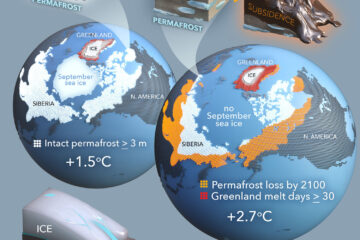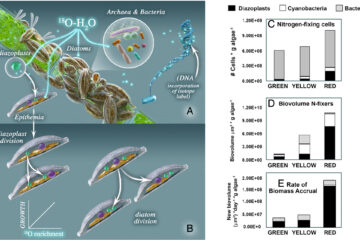Data‐constrained projections of methane fluxes in a northern Minnesota peatland in response to elevated CO2 and warming
Large uncertainties exist in predicting responses of wetland methane (CH4) fluxes to future climate change. However, sources of the uncertainty have not been clearly identified despite the fact that methane production and emission processes have been extensively explored. In this study, we took advantage of manual CH4 flux measurements under ambient environment from 2011 to 2014 at the Spruce and Peatland Responses Under Changing Environments (SPRUCE) experimental site and developed a data‐informed process‐based methane module. The module was incorporated into the Terrestrial ECOsystem (TECO) model before its parameters were constrained with multiple years of methane flux data for forecasting CH4 emission under five warming and two elevated CO2 treatments at SPRUCE. We found that 9°C warming treatments significantly increased methane emission by approximately 400%, and elevated CO2 treatments stimulated methane emission by 10.4%–23.6% in comparison with ambient conditions. The relative contribution of plant‐mediated transport to methane emission decreased from 96% at the control to 92% at the 9°C warming, largely to compensate for an increase in ebullition. The uncertainty in plant‐mediated transportation and ebullition increased with warming and contributed to the overall changes of emissions uncertainties. At the same time, our modeling results indicated a significant increase in the emitted CH4:CO2 ratio. This result, together with the larger warming potential of CH4, will lead to a strong positive feedback from terrestrial ecosystems to climate warming. The model‐data fusion approach used in this study enabled parameter estimation and uncertainty quantification for forecasting methane fluxes.


